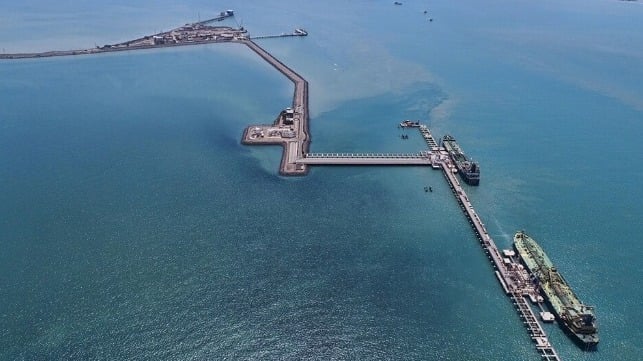Trump Threatens to Hike India's Tariff Rate Over Russian Oil Imports

On Wednesday, after securing tentative trade deals with Japan and the EU, President Donald Trump ratcheted up the pressure on India with the announcement of a 25 percent tariff rate on Indian exports. The announcement also includes an extra surcharge to penalize India for its purchasing of Russian arms and oil, with the percentage amount yet to be determined. It is the first time that India, the second-largest remaining buyer of Russian crude, has been directly targeted for its role in financing Russian military activities in Ukraine.
"[India's] Tariffs are far too high, among the highest in the World, and they have the most strenuous and obnoxious non-monetary Trade Barriers of any Country," Trump announced in a social media post (caps original). "Also, they have always bought a vast majority of their military equipment from Russia, and are Russia’s largest buyer of ENERGY, along with China, at a time when everyone wants Russia to STOP THE KILLING IN UKRAINE."
As of June, India's refineries accounted for about 38 percent of Russian oil export sales, according to the Center for Research on Energy and Clean Air (CREA). Seaborne crude exports bring in about $220 million per day for the Russian economy, generating billions in tax revenues for the Kremlin.
The tariffs on India are an initial sign of the president's new willingness to penalize Russia for ongoing hostilities in Ukraine, and amount to indirect financial sanctions on a key Russian trading relationship. Trump has so far refrained from expanding Treasury's list of direct sanctions on Russian individuals, entities, commodities and vessels, but this could change. A separate U.S. Treasury action announced on Wednesday placed sanctions on Iranian tanker operator Mohammad Hossein Shamkhani, who manages about 50 "shadow fleet" vessels that often carry Russian oil; the move is a significant expansion of U.S. tanker sanctions, and will have direct effects on Russian crude oil shipping.
Trump has so far resisted the Senate's efforts to pass a severe sanctions bill targeting Russia's trading partners. If passed as written, the bill would impose crippling 500-percent U.S. tariffs on countries that buy Russian oil - India, China and to a smaller extent Turkey. The bill contains a provision for a single 180-day presidential waiver, but Trump wants to maintain full control over any sanctions or tariffs, and has pressed the Senate for a version that contains an unlimited presidential waiver authority.
“We’re still working with them [the White House],” Senate Majority Leader John Thune told Politico.
